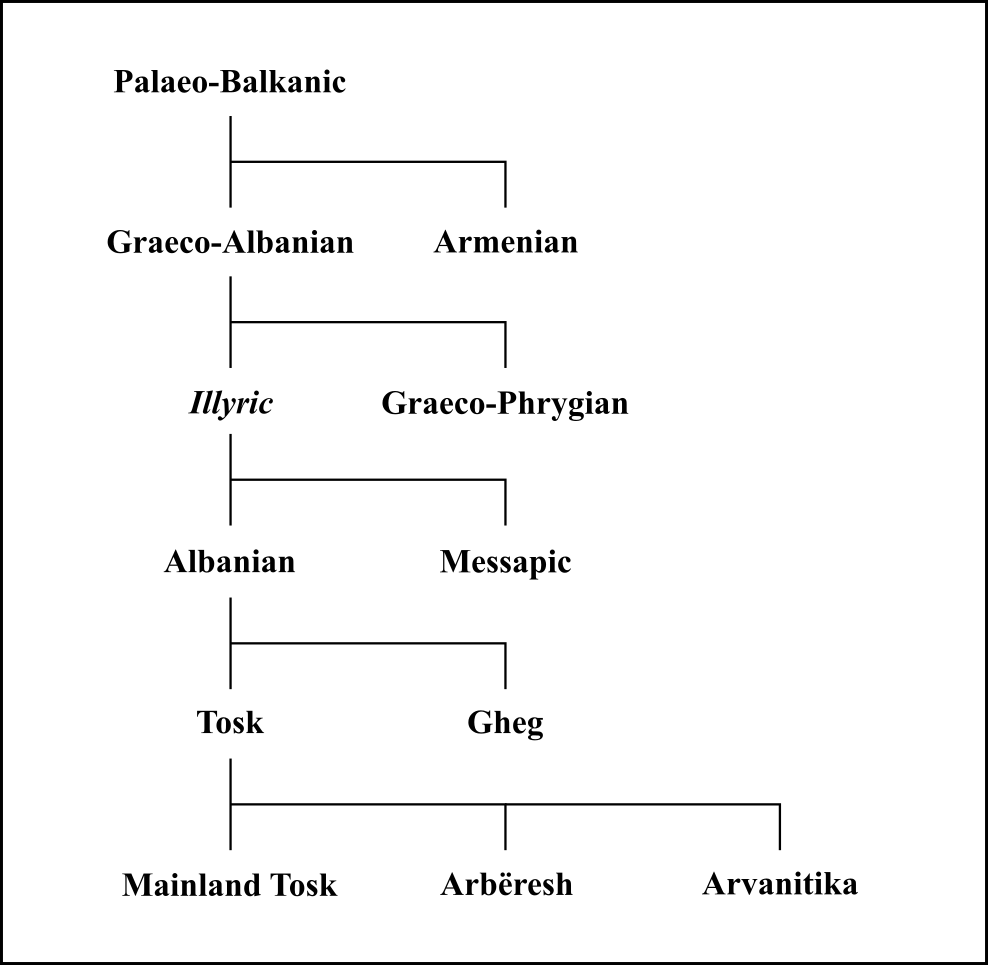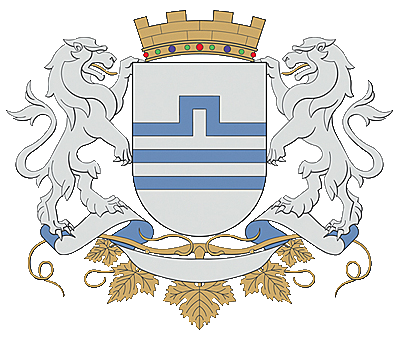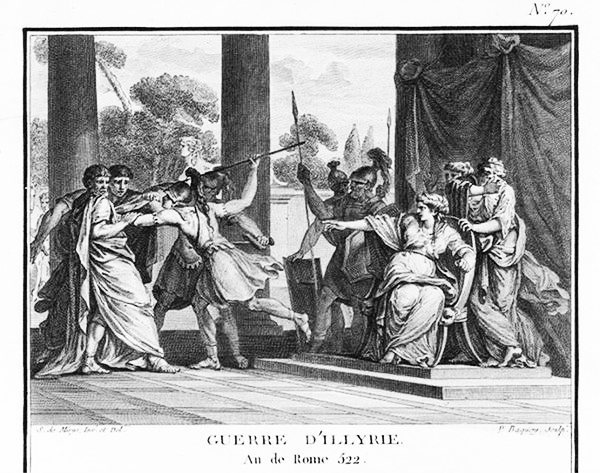|
Labeati
The Labeatae, Labeatai or Labeates ( grc, Λαβεᾶται; la, Labeatae) were an Illyrian people that lived on the Adriatic coast of southern Illyria, between modern Albania and Montenegro, around Lake Scodra (the ancient ''Lacus Labeatis''). Their territory, which was called Labeatis in classical antiquity, seems to have stretched from Lissus at the river Drin in the south, or probably even from the valley of Mat, up to Meteon in the north. Their centre and main stronghold was Skodra, which during the last period of the Illyrian kingdom was the capital city. The Labeatan kingdom was also in possession of Rhizon, the Ardiean capital. The dynasty of the last Illyrian kings (Scerdilaidas, Pleuratus, Gentius) was Labeatan.; ; It is possible that the decline of the Ardiaean dynasty after Queen Teuta's defeat in the First Illyrian War against Rome caused the emergence of the Labeatan dynasty on the political scene. In Roman times the Labeatae minted coins bearing the inscri ... [...More Info...] [...Related Items...] OR: [Wikipedia] [Google] [Baidu] |
Scerdilaidas
Scerdilaidas or Skerdilaid ( grc, Σκερδιλαΐδας; ruled 218206 BC) was an Illyrian ruler of the Illyrian kingdom under the Labeatan dynasty. Before taking the throne, Scerdilaidas was commander of the Illyrian armies and played a major role in the Illyrian Wars against the Romans. Scerdilaidas was one of the youngest brothers of Agron and father of Pleuratus III and grandfather of Gentius.Épire, Illyrie, Macédoine: mélanges offerts au professeur Pierre Cabanes by Danièle Berranger, Pierre Cabanes, Danièle Berranger-Auserve, page 133 Scerdilaidas took part in many expeditions in the Ionian and Aegean with Demetrius and his brother-in-law Amynas of Athamania. During his early reign Scerdilaidas was an ally of Rome. In 217 BC Scerdilaidas later adopted Roman rule and became an enemy of Macedonia for parleying with Rome. With the Romans invested by Hannibal, Philip V of Macedon sought to take southern Illyria from Scerdilaidas and made several advancements into the ... [...More Info...] [...Related Items...] OR: [Wikipedia] [Google] [Baidu] |
Names Of The Albanians And Albania
The Albanians ( sq, Shqiptarët) and their country Albania (''Shqipëria'') have been identified by many ethnonyms. The native endonym is Shqiptar. The name "Albanians" Latin: ''Albanenses/Arbanenses'') was used in medieval Greek and Latin documents that gradually entered European languages from which other similar derivative names emerged. Linguists believe that the ''alb'' part in the root word originates from an Indo-European term for a type of mountainous topography, meaning "hill, mountain", also present in ''Alps''. Through the root word ''alban'' and its rhotacized equivalents ''arban'', ''albar'', and ''arbar'', the term in Albanian became rendered as ''Arbëreshë'' ( aln, Arbëneshë) for the people and ''Arbëria'' ( aln, Arbënia, link=no) for the country. Contemporary Albanian language employs a different ethnonym, with modern Albanians referring to themselves as ''Shqiptarë'' and to their country as ''Shqipëria''. Two etymologies have been proposed for this ethn ... [...More Info...] [...Related Items...] OR: [Wikipedia] [Google] [Baidu] |
Metathesis (linguistics)
Metathesis (; from Greek , from "I put in a different order"; Latin: ''transpositio'') is the transposition of sounds or syllables in a word or of words in a sentence. Most commonly, it refers to the interchange of two or more contiguous segments or syllables, known as adjacent metathesis or local metathesis: * ''foliage'' > ''**foilage'' (adjacent segments) * ''anemone'' > ''**anenome'' (adjacent syllables) * ''cavalry'' > ''**calvary'' (codas of adjacent syllables) Metathesis may also involve interchanging non-contiguous sounds, known as nonadjacent metathesis, long-distance metathesis, or hyperthesis, as shown in these examples of metathesis sound change from Latin to Spanish: * Latin > Spanish "word" * Latin > Spanish "miracle" * Latin > Spanish "danger, peril" * Latin > Spanish "crocodile" Many languages have words that show this phenomenon, and some even use it as a regular part of their grammar, such as Hebrew and Fur. The process of metathesis has altered the ... [...More Info...] [...Related Items...] OR: [Wikipedia] [Google] [Baidu] |
Illyrian Language
The Illyrian language () was an Indo-European language or group of languages spoken by the Illyrians in Southeast Europe during antiquity. The language is unattested with the exception of personal names and placenames. Just enough information can be drawn from these to allow the conclusion that it belonged to the Indo-European language family. In ancient sources, the term " Illyrian" is applied to a wide range of tribes settling in a large area of southeastern Europe, including Ardiaei, Autariatae, Delmatae, Dassareti, Enchelei, Labeatae, Pannonii, Parthini, Taulantii and others (see list of ancient tribes in Illyria). It is not known to what extent all of these tribes formed a homogeneous linguistic group, but the study of the attested eponyms has led to the identification of a linguistic core area in the south of this zone, roughly around what is now Albania and Montenegro, where Illyrian proper is believed to have been spoken. Little is known about the relationships betwee ... [...More Info...] [...Related Items...] OR: [Wikipedia] [Google] [Baidu] |
Ab Urbe Condita Libri
The work called ( en, From the Founding of the City), sometimes referred to as (''Books from the Founding of the City''), is a monumental history of ancient Rome, written in Latin between 27 and 9 BC by Livy, a Roman historian. The work covers the period from the legends concerning the arrival of Aeneas and the refugees from the fall of Troy, to the Founding of Rome, city's founding in 753 BC, the expulsion of the King of Rome, Kings in 509 BC, and down to Livy's own time, during the reign of the emperor Augustus. The last event covered by Livy is the death of Nero Claudius Drusus, Drusus in 9 BC. 35 of 142 books, about a quarter of the work, are still extant. The surviving books deal with the events down to 293 BC (books 1–10), and from 219 to 166 BC (books 21–45). Contents Corpus The ''History of Rome'' originally comprised 142 "books", thirty-five of which—Books 1–10 with the Preface and Books 21–45—still exist in reasonably complete form. D ... [...More Info...] [...Related Items...] OR: [Wikipedia] [Google] [Baidu] |
Livy
Titus Livius (; 59 BC – AD 17), known in English as Livy ( ), was a Ancient Rome, Roman historian. He wrote a monumental history of Rome and the Roman people, titled , covering the period from the earliest legends of Rome before the traditional founding in 753 BC through the reign of Augustus in Livy's own lifetime. He was on familiar terms with members of the Julio-Claudian dynasty and a friend of Augustus, whose young grandnephew, the future emperor Claudius, he exhorted to take up the writing of history. Life Livy was born in Patavium in northern Italy (Roman Empire), Italy, now modern Padua, probably in 59 BC. At the time of his birth, his home city of Patavium was the second wealthiest on the Italian peninsula, and the largest in the province of Cisalpine Gaul (northern Italy). Cisalpine Gaul was merged in Roman Italy, Italy proper during his lifetime and its inhabitants were given Roman citizenship by Julius Caesar. In his works, Livy often expressed his deep affection an ... [...More Info...] [...Related Items...] OR: [Wikipedia] [Google] [Baidu] |
Polybius
Polybius (; grc-gre, Πολύβιος, ; ) was a Greek historian of the Hellenistic period. He is noted for his work , which covered the period of 264–146 BC and the Punic Wars in detail. Polybius is important for his analysis of the mixed constitution or the separation of powers in government, his in-depth discussion of checks and balances to limit power, and his introduction of "the people", which influenced Montesquieu's ''The Spirit of the Laws'', John Locke's ''Two Treatises of Government'', and the framers of the United States Constitution. The leading expert on Polybius for nearly a century was F. W. Walbank (1909–2008), who published studies related to him for 50 years, including a long commentary of his ''Histories'' and a biography. Early life Polybius was born around 200 BC in Megalopolis, Greece, Megalopolis, Arcadia (region), Arcadia, when it was an active member of the Achaean League. The town was revived, along with other Achaean states, a century before he ... [...More Info...] [...Related Items...] OR: [Wikipedia] [Google] [Baidu] |
The Histories (Polybius)
Polybius’ ''Histories'' ( grc-gre, Ἱστορίαι ''Historíai'') were originally written in 40 volumes, only the first five of which are extant in their entirety. The bulk of the work was passed down through collections of excerpts kept in libraries in the Byzantine Empire. Polybius, a historian from the Greek city of Megalopolis in Arcadia, was taken as a hostage to Rome after the Roman victory in the Third Macedonian War (171–168 BC), and there he began to write an account of the rise of Rome to a great power. Content Polybius' ''Histories'' begin in the year 264 BC and end in 146 BC (Polybius was born around 200 BC and died around 117 BC). He is primarily concerned with the 53 years in which Ancient Rome became a dominant world power. This period, from 220–167 BC, saw Rome subjugate Carthage and gain control over Hellenistic Greece. Books I through V cover the affairs of important states at the time (Ptolemaic Egypt, Hellenistic Greece, Macedon) and deal extensiv ... [...More Info...] [...Related Items...] OR: [Wikipedia] [Google] [Baidu] |
Meteon Labeatidis Terrae
Medun ( cnr, Медун) is a settlement located 13 km northeast of the capital Podgorica, Montenegro. The village houses the archaeological site of the ancient fortified city of ''Medeon''. It is situated in the tribal area of Upper Kuči, one of the highland tribes. In the 2003 census, it had 108 inhabitants. In ancient times, Medun was inhabited by the Illyrians between the 4th and 3rd centuries BC. Geography As Mariano Bolizza described in 1614, it is situated on a beautiful hill on a cleft in the mountainside, between two other mountains, overlooking a very spacious valley.Elsie, p. 155 History Ancient and Roman times Medun is an old town and fortress, situated 13 kilometers northeast from Podgorica, Montenegro. It was erected originally as a fortress, later on as a town, between 4th and 3rd centuries BC, by Illyrians living in the area. It was known as Medeon ( grc, Μεδεών), Meteon, or Modunense. Well preserved walls of the fortress were built of big blocks ... [...More Info...] [...Related Items...] OR: [Wikipedia] [Google] [Baidu] |
Roman Republic
The Roman Republic ( la, Res publica Romana ) was a form of government of Rome and the era of the classical Roman civilization when it was run through public representation of the Roman people. Beginning with the overthrow of the Roman Kingdom (traditionally dated to 509 BC) and ending in 27 BC with the establishment of the Roman Empire, Rome's control rapidly expanded during this period—from the city's immediate surroundings to hegemony over the entire Mediterranean world. Roman society under the Republic was primarily a cultural mix of Latin and Etruscan societies, as well as of Sabine, Oscan, and Greek cultural elements, which is especially visible in the Roman Pantheon. Its political organization developed, at around the same time as direct democracy in Ancient Greece, with collective and annual magistracies, overseen by a senate. The top magistrates were the two consuls, who had an extensive range of executive, legislative, judicial, military, and religious powers ... [...More Info...] [...Related Items...] OR: [Wikipedia] [Google] [Baidu] |
First Illyrian War
The Illyro-Roman Wars were a series of wars fought between the Roman Republic and the Ardiaei kingdom. In the ''First Illyrian War'', which lasted from 229 BC to 228 BC, Rome's concern was that the trade across the Adriatic Sea increased after the First Punic War at a time when Ardiaei power increased under queen Teuta. Attacks on trading vessels of Rome's Italic allies by Illyrian pirates and the death of a Roman envoy named Coruncanius on Teuta's orders,Zock, 99. prompted the Roman senate to dispatch a Roman army under the command of the consuls Lucius Postumius Albinus (consul 234 BC), Lucius Postumius Albinus and Gnaeus Fulvius Centumalus. Rome expelled Illyrians, Illyrian garrisons from a number of Greece, Greek cities including Epidamnus, Apollonia (Illyria), Apollonia, Korkyra (polis), Corcyra, Hvar, Pharos and established a protectorate over these Greek towns. The Ancient Rome, Romans also set up Demetrius of Pharos as a power in Illyria to counterbalance the power of Teuta.E ... [...More Info...] [...Related Items...] OR: [Wikipedia] [Google] [Baidu] |

_(CS)%2C_Le_Vallje_2009._(5).jpg)






